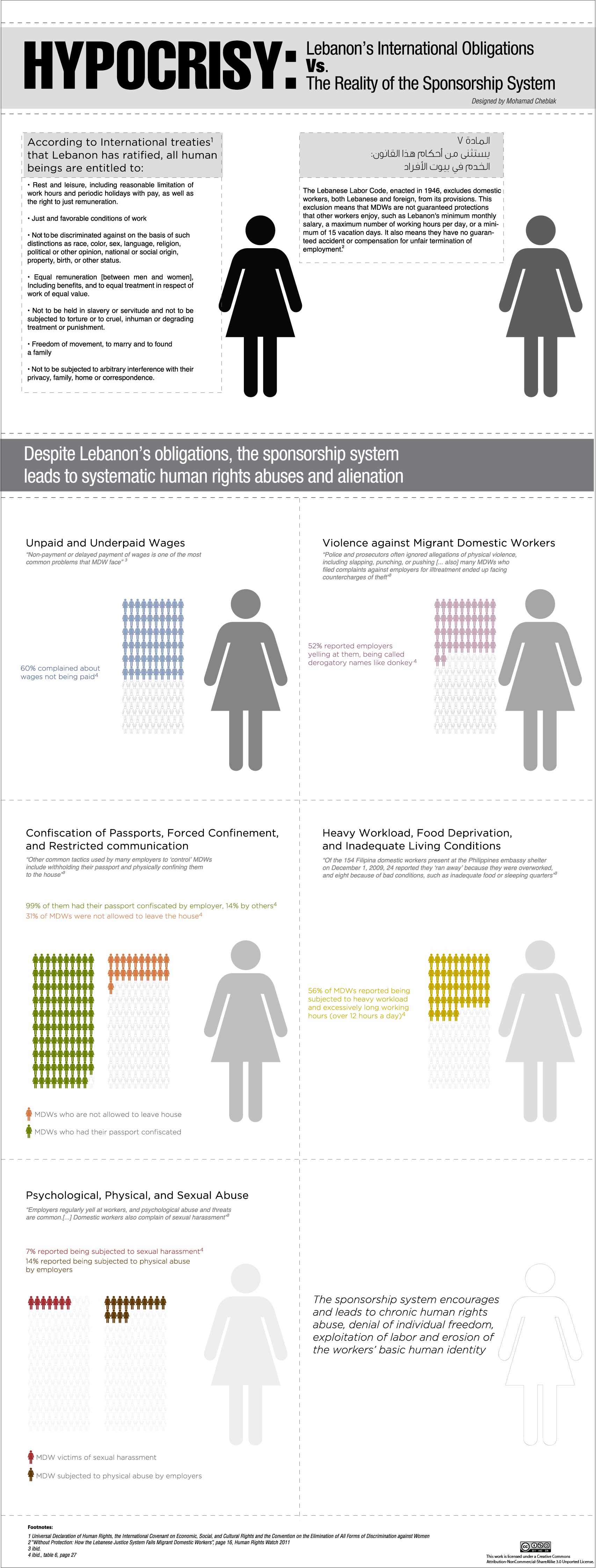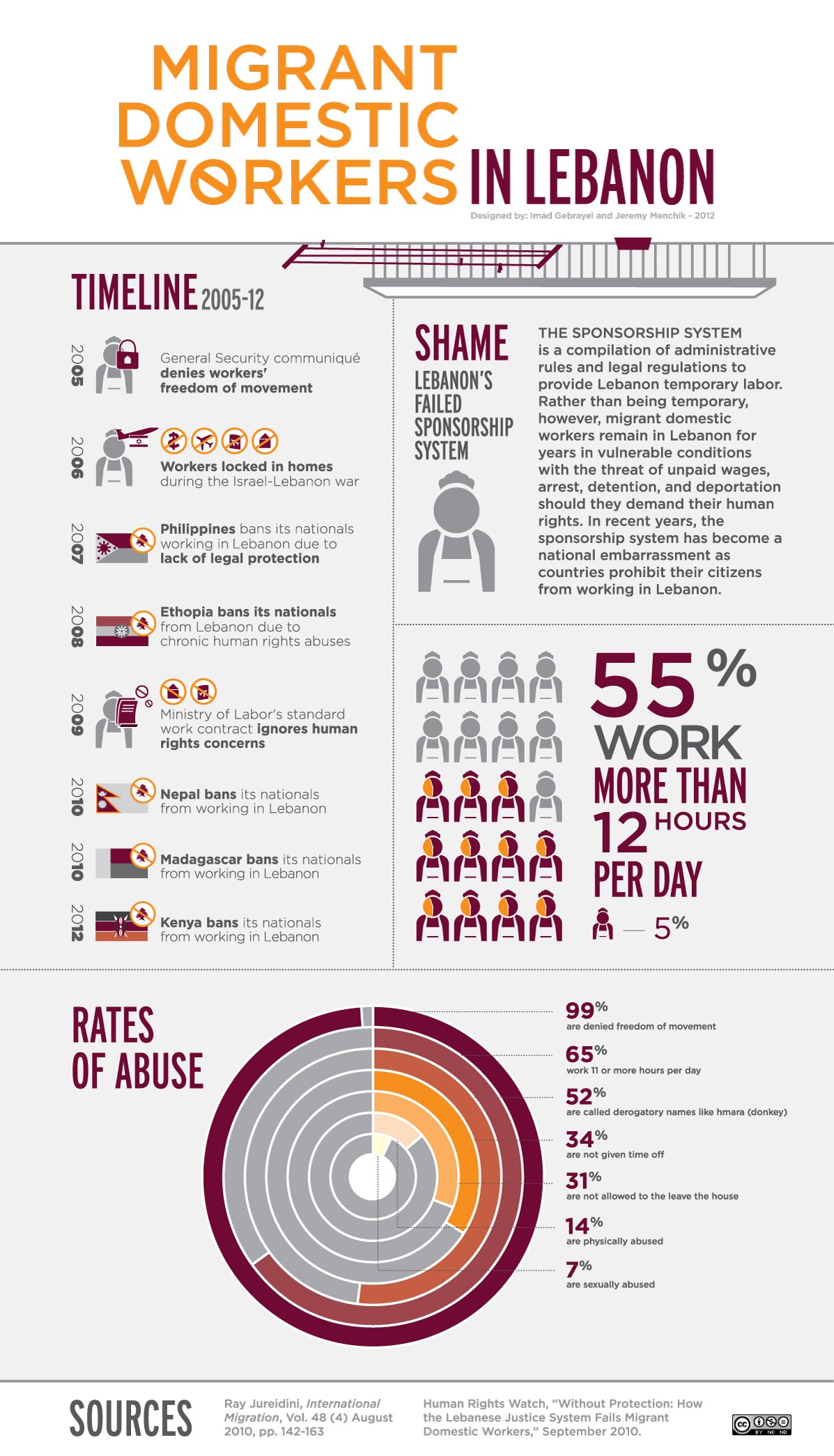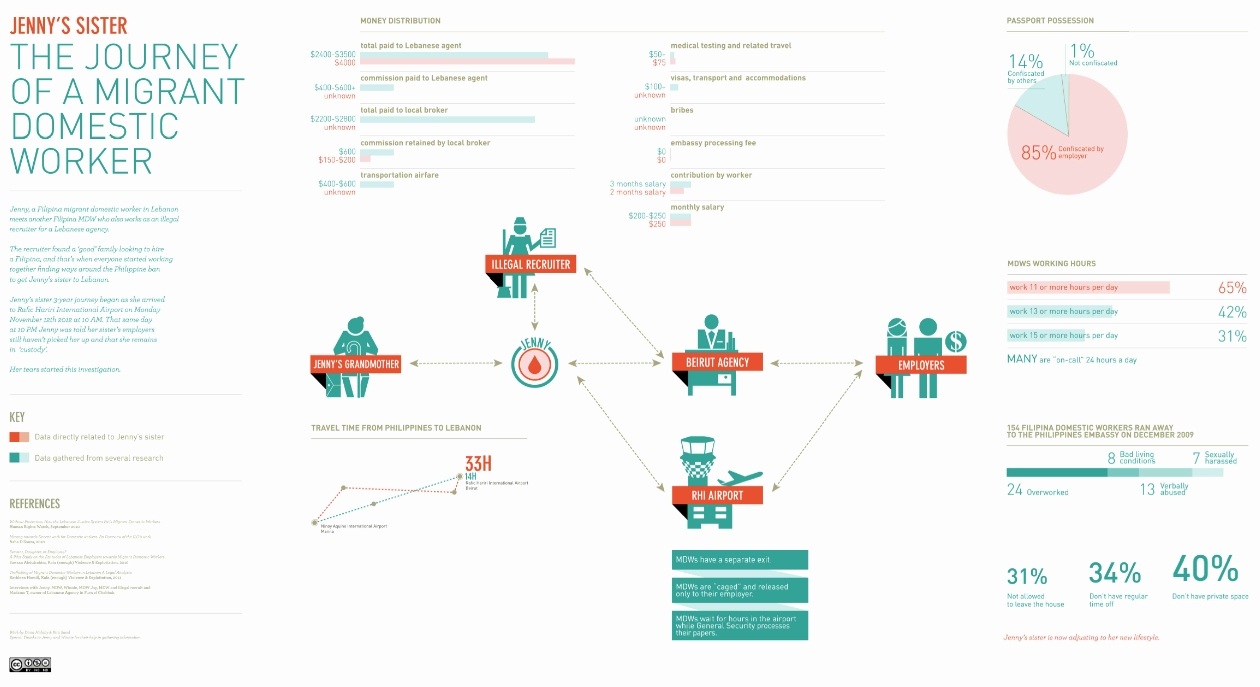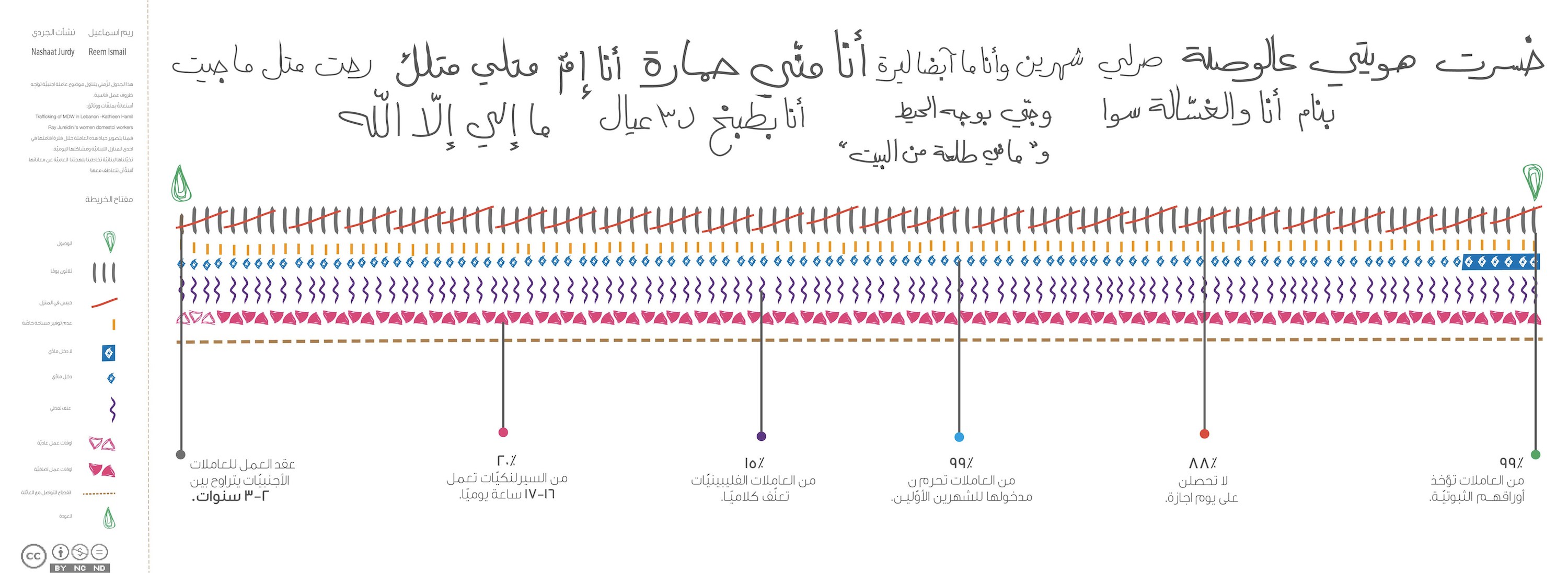[Text by Jeremy Menchik. Workshop organized by Joumana Ibrahim and Dima Saber. Graphics by designers listed below each graphic.]
Five decades after the development of the kefala [sponsorship] system, Lebanon’s 200,000 migrant domestic workers continue to be denied their inalienable rights, including freedom of movement, just conditions of work, the right to marry and to found a family, the right to legal recognition, and freedom from inhuman or degrading treatment. In recognition of International Migrants Day on 18 December, Migrant Workers’ Task Force, AltCity.me, and graphic designer Joumana Ibrahim worked with a group of young graphic designers to visualize migrant workers’ rights and hardships. The result is a series of images that illustrate the human rights abuses brought about by the sponsorship system.
The sponsorship system was developed in the 1950s to provide temporary labor during economic booms that could then be expelled during periods of economic downturn. Yet, rather than providing temporary labor, migrant workers remain in Lebanon for years in vulnerable conditions with the threat of detention, unpaid wages, arrest, and deportation should they demand their rights.
The root of the problem is that migrant domestic workers’ immigration status is bound to their sponsor. Migrant domestic workers cannot enter the country, transfer employment, travel within the country, or leave the country without permission from their sponsor. The sponsor almost always confiscates the passport and travel documents of the worker, restricts their contacts outside the home, and often prevents them from leaving the home entirely. Migrant domestic workers are thus completely dependent on their sponsor for food, housing, healthcare, wages, leisure, communications, and other basic freedoms.
This system violates basic human rights as guaranteed by Lebanese ratification of various human rights treaties. Under Lebanese and international human rights law, individuals cannot be held in conditions of slavery or servitude, cannot be subjected to inhuman or degrading treatment, have the right to work, the right to free choice of employment, the right to just conditions of work, and the right to rest and leisure, including reasonable limits on working hours and holidays with pay. In recognition of International Migrants Day, we call for migrant domestic workers to be covered under the Lebanese labor law, to have their immigration status decoupled from their employer, and to be given the same rights and protection as Lebanese citizens.
The workshops are a part of AltCity`s "Media for Human Rights" program that is supported by the Netherlands Embassy in Lebanon.
[If images appear smaller than you would like on your screen, hold down "command" and press "+" as many times as you need to make the images/page appear larger.]
[You can download each of the images as a PDF file by clicking on it.]
["Hypocrisy: Lebanon`s International Obligations vs. The Reality of the Sponsorship System,"
by Mohamad Cheblak]
["Shame," by Imad Gebrayel and Jeremy Menchik]
["The Long Journey," by Sarah Habli and Dina Alwani.]
["Jenny’s Sister," by Dana Halaby and Rita Saad]
["My Story," by Reem Ismail and Nashaat Jurdy]
["Lebanese Attitudes," by Bruna Tohme and Joanne Harik.]





